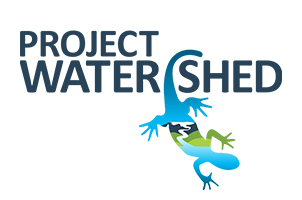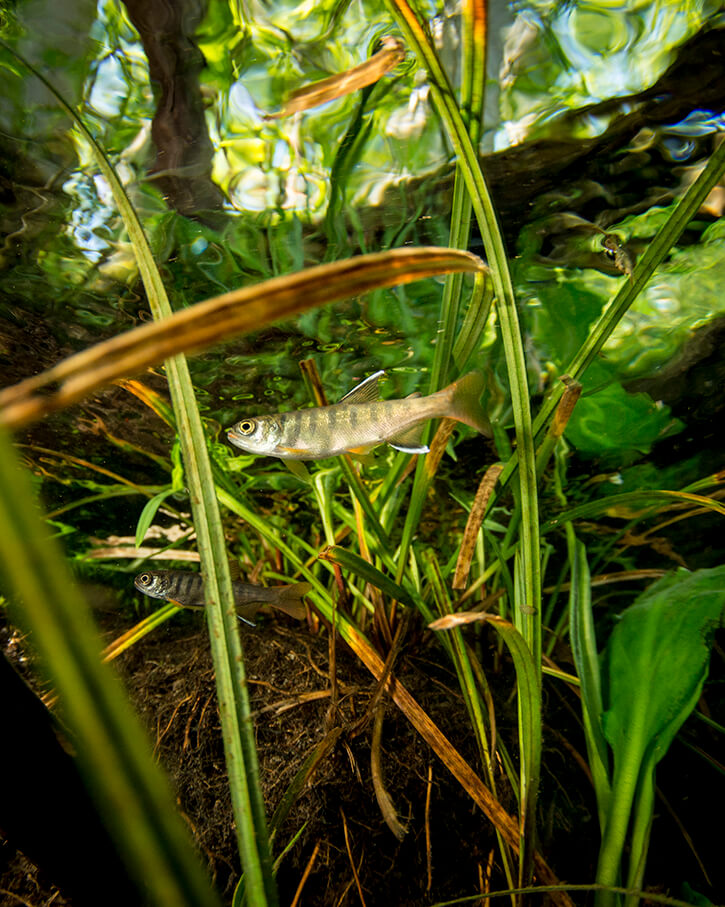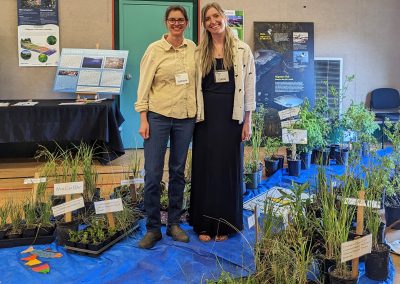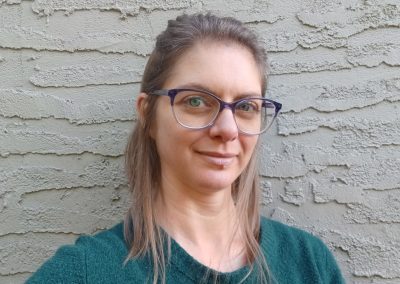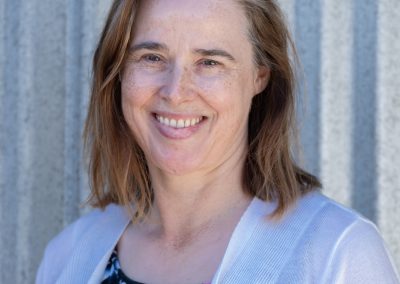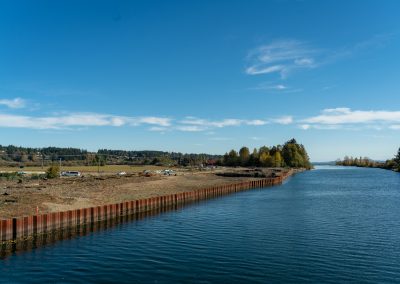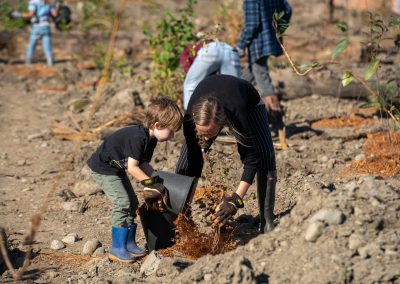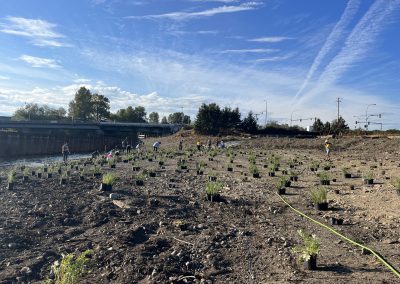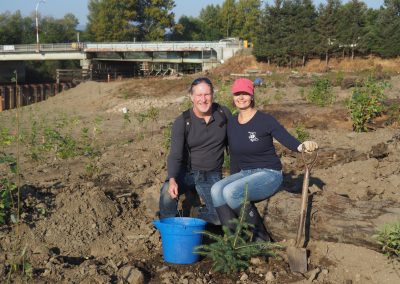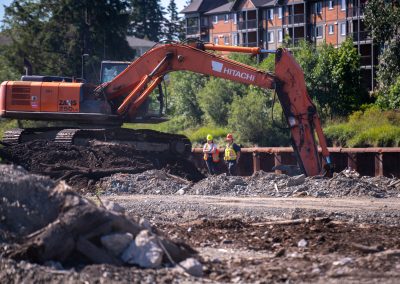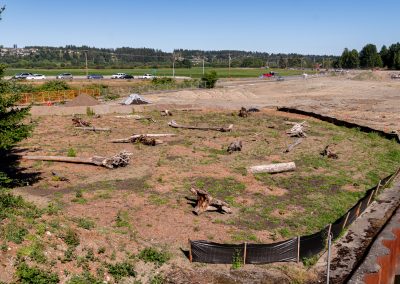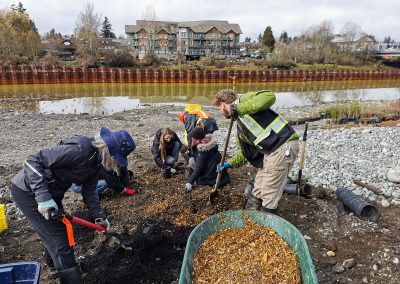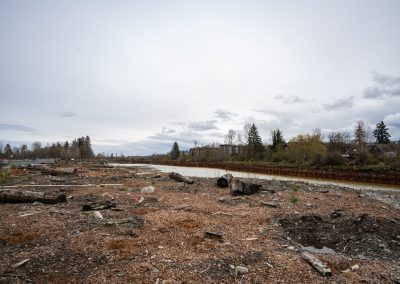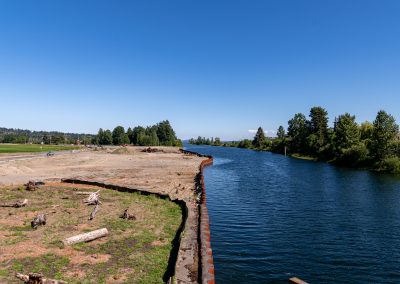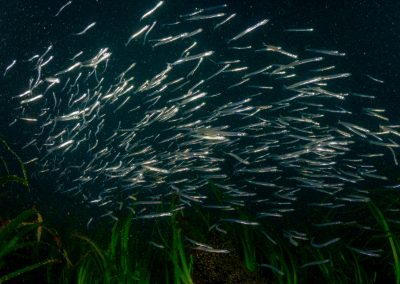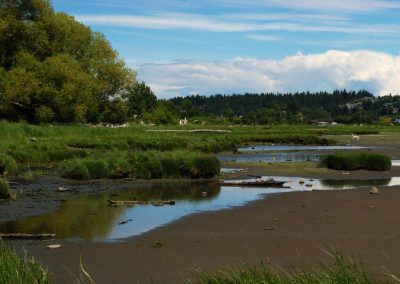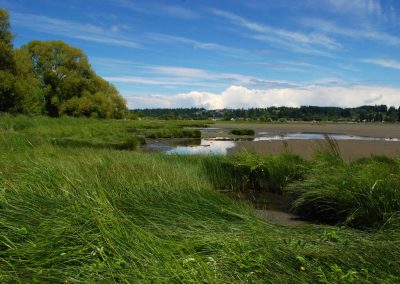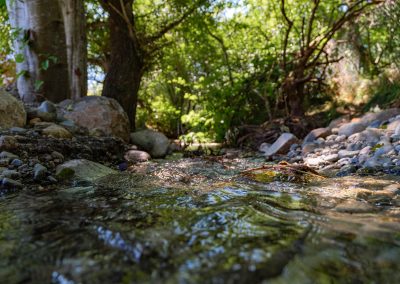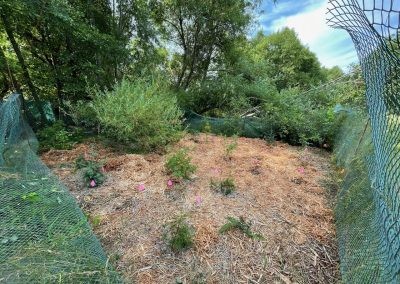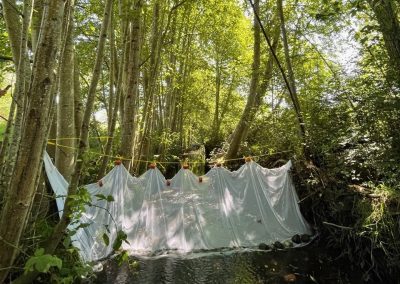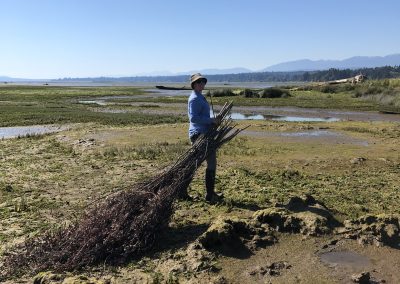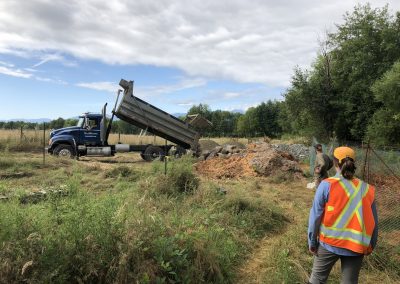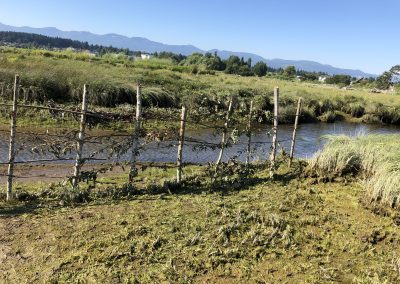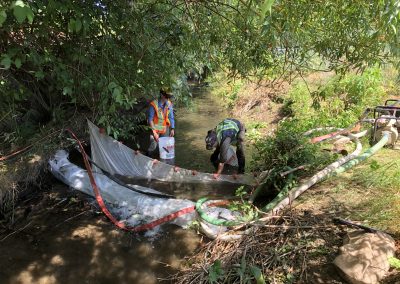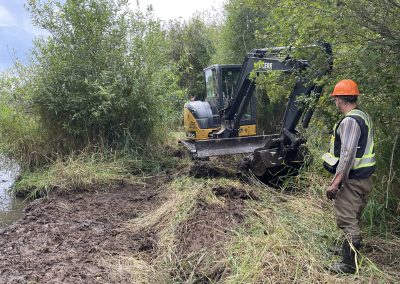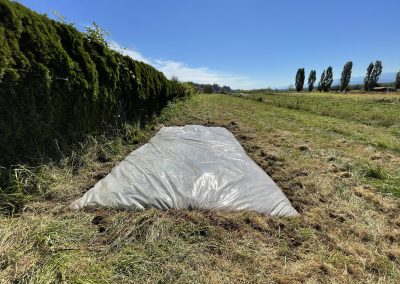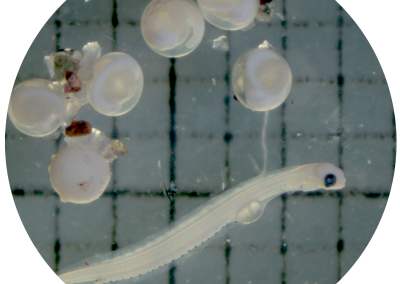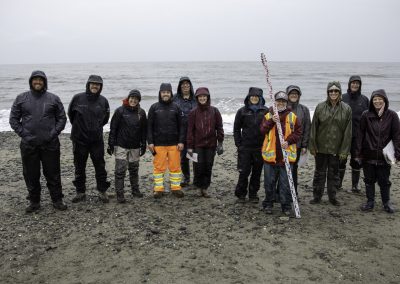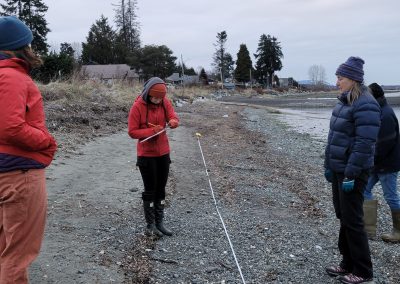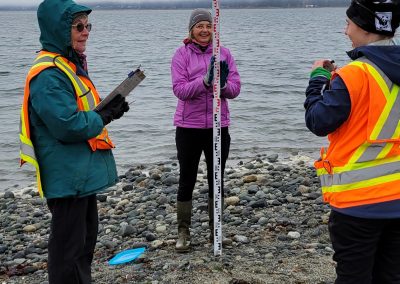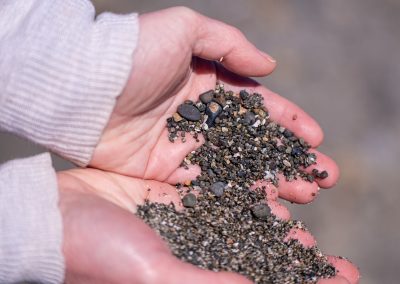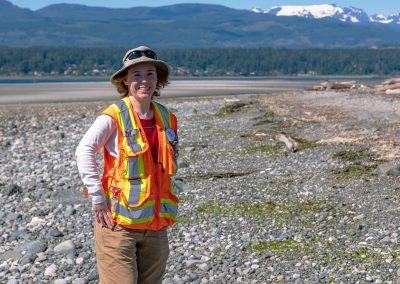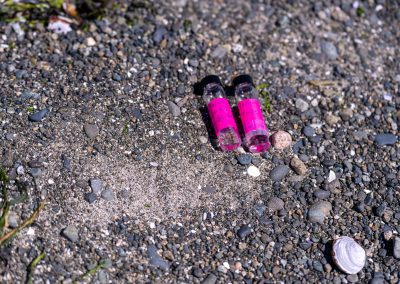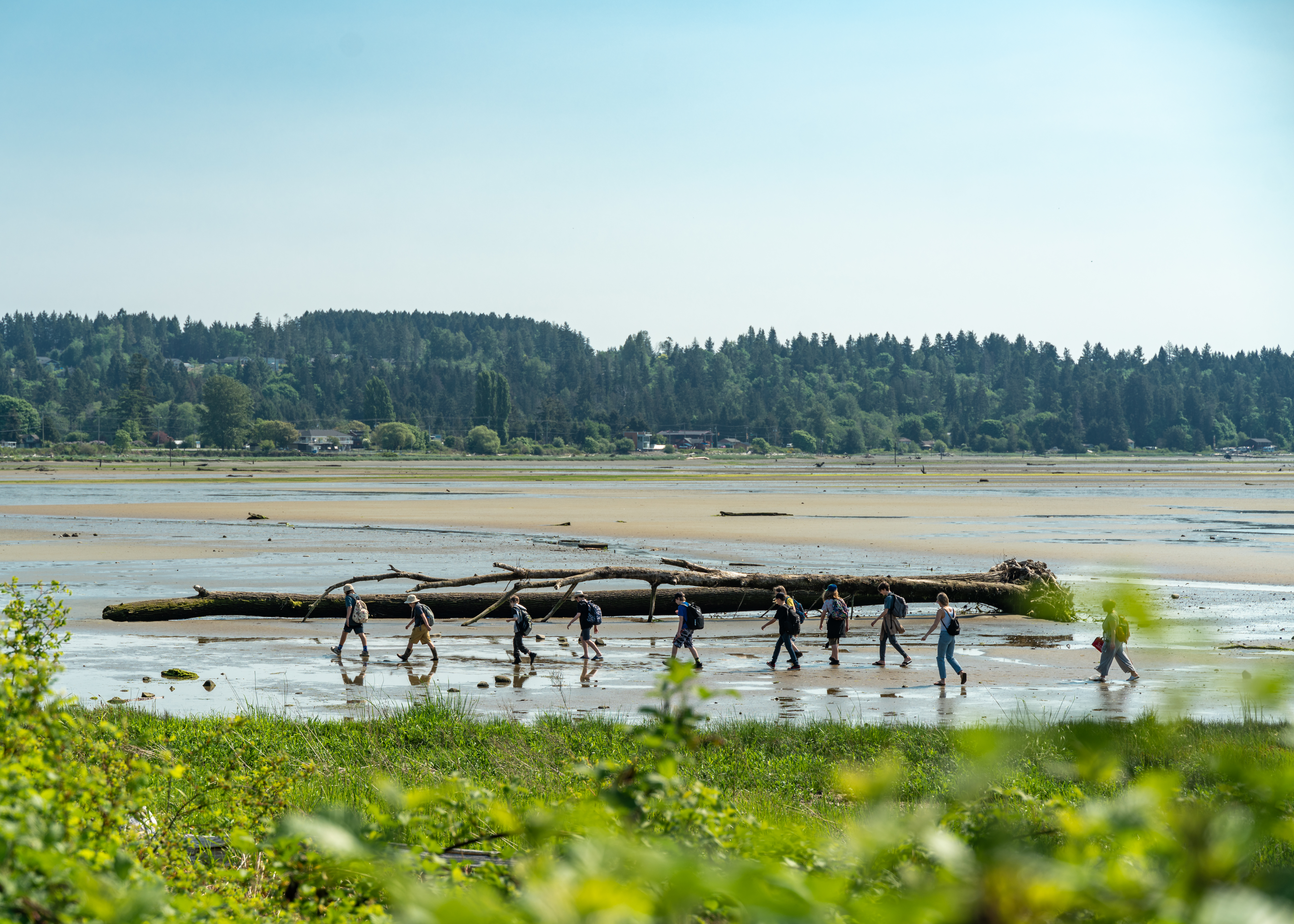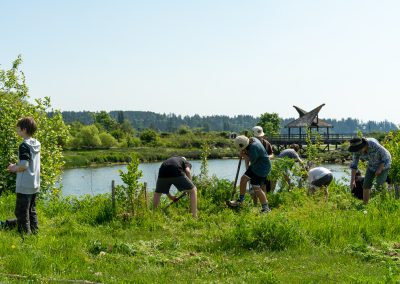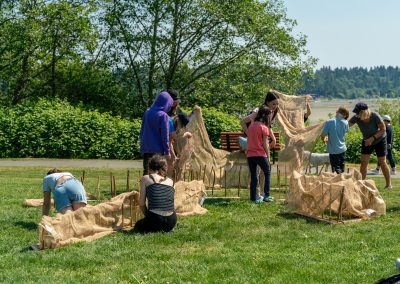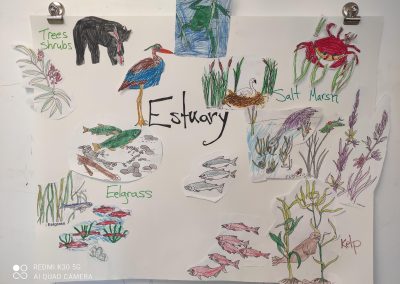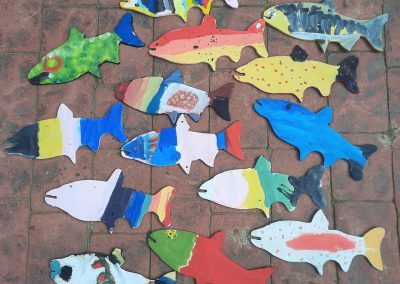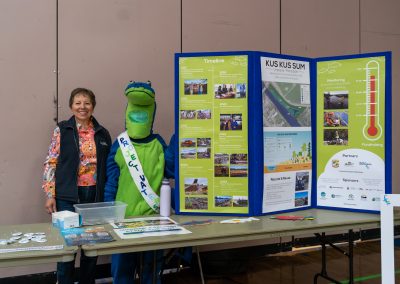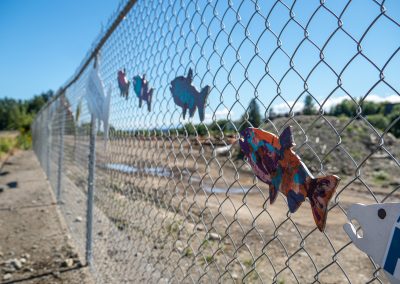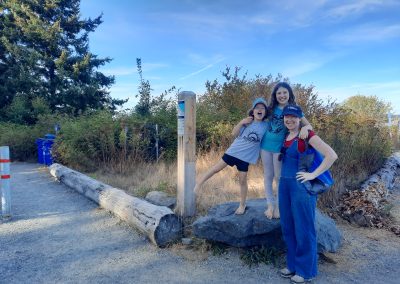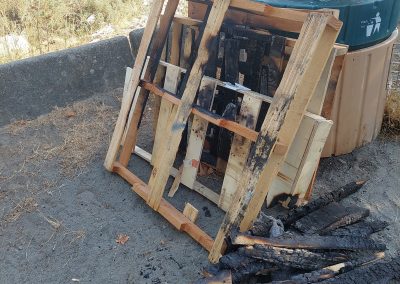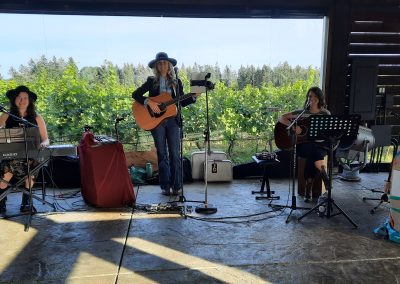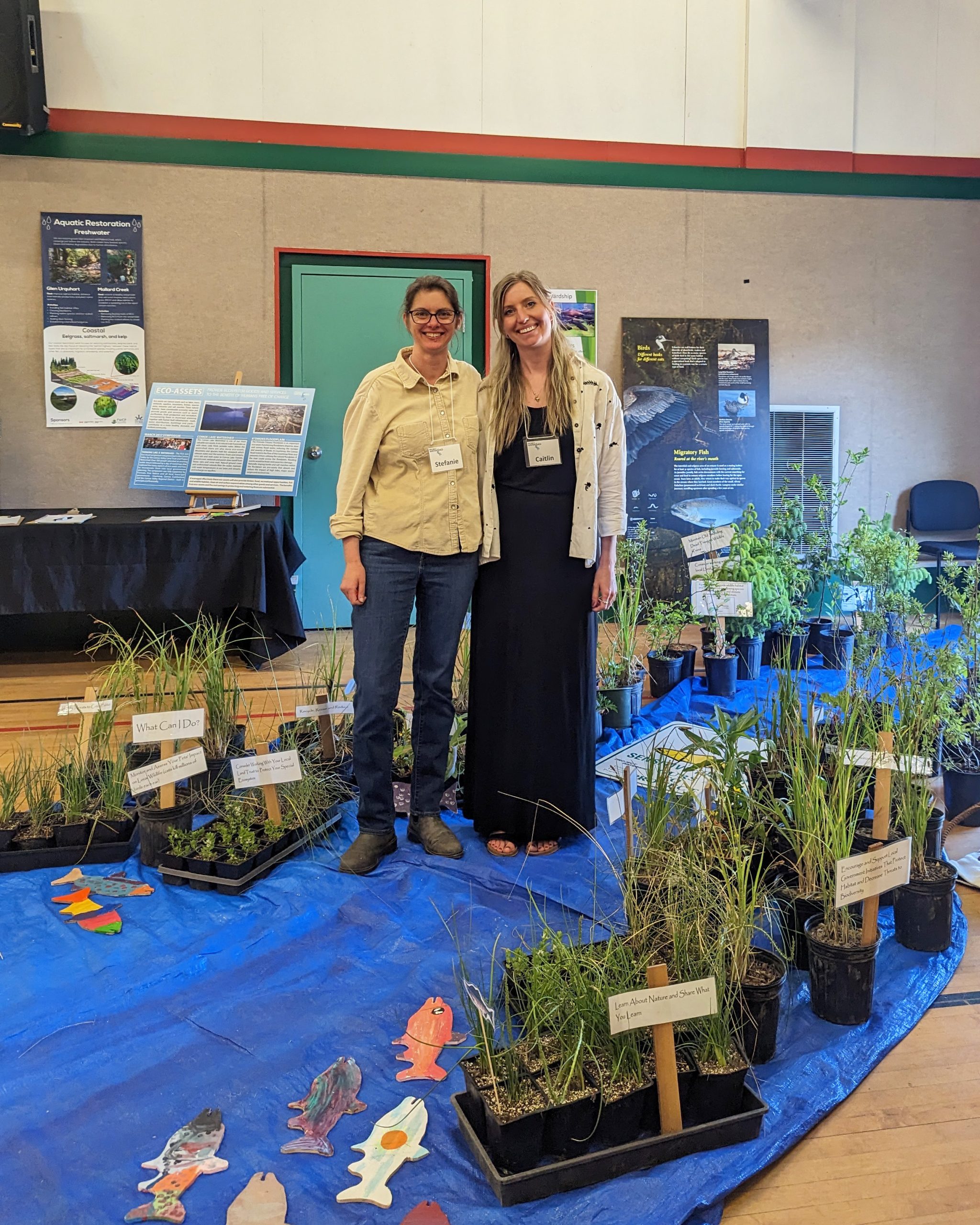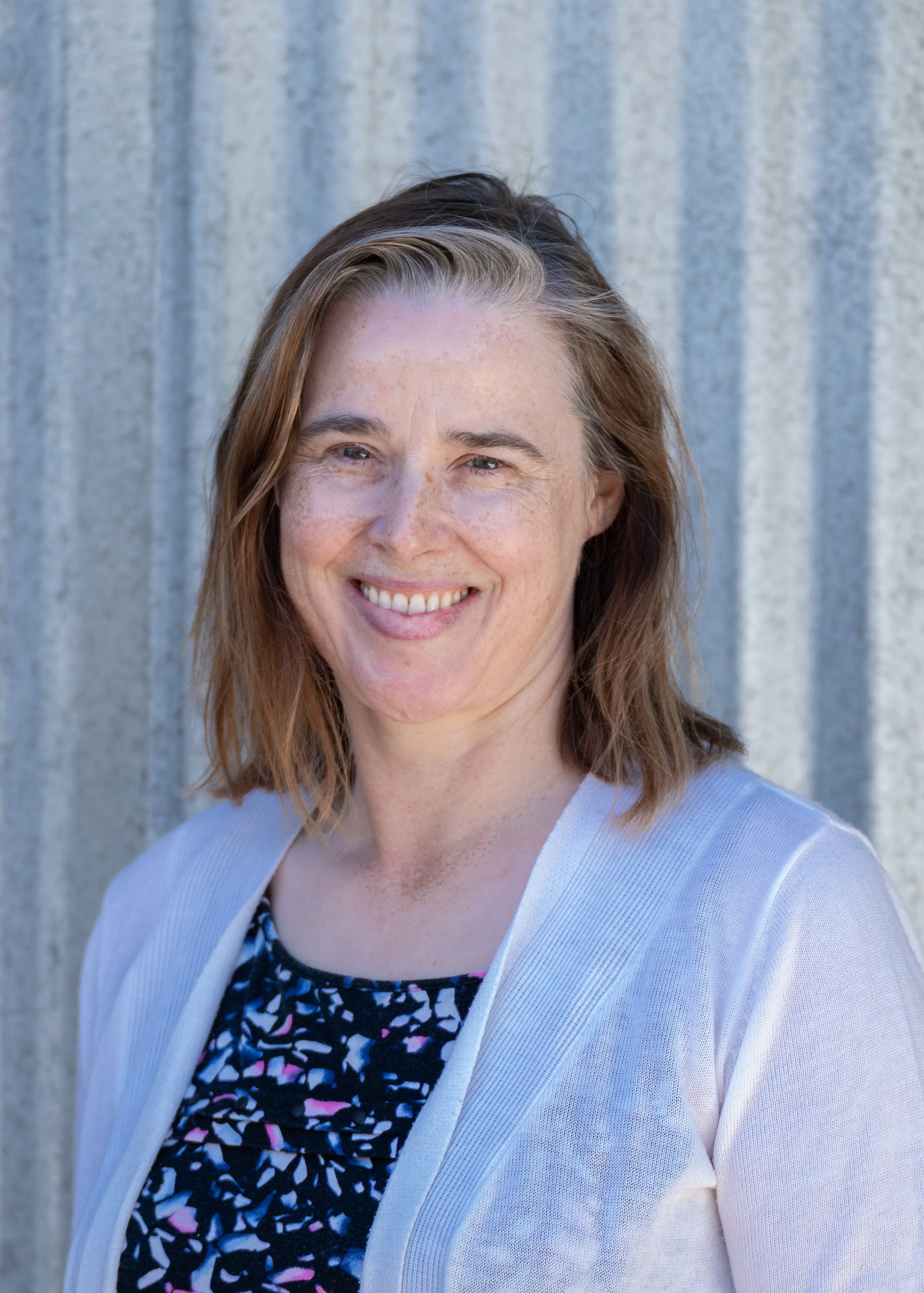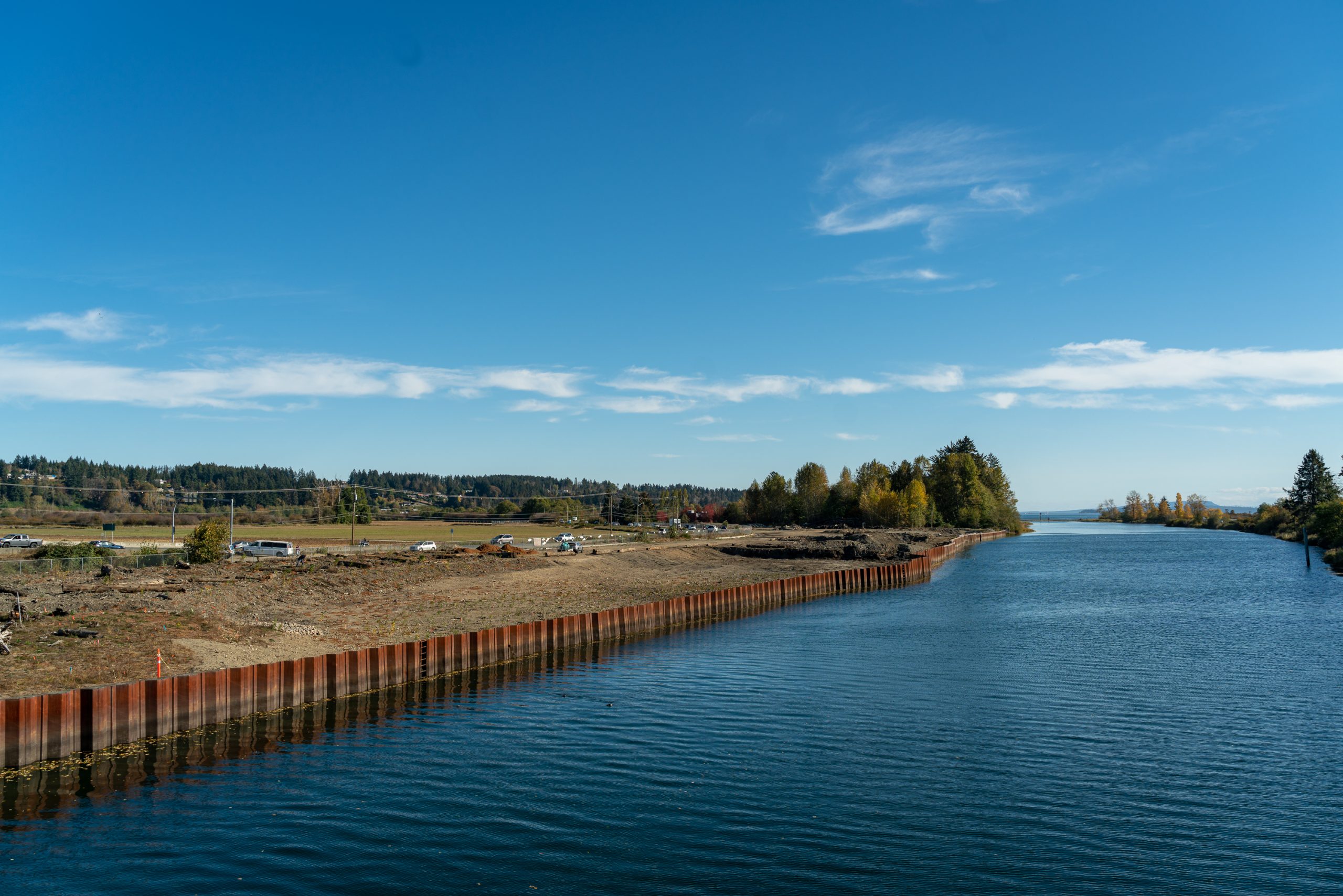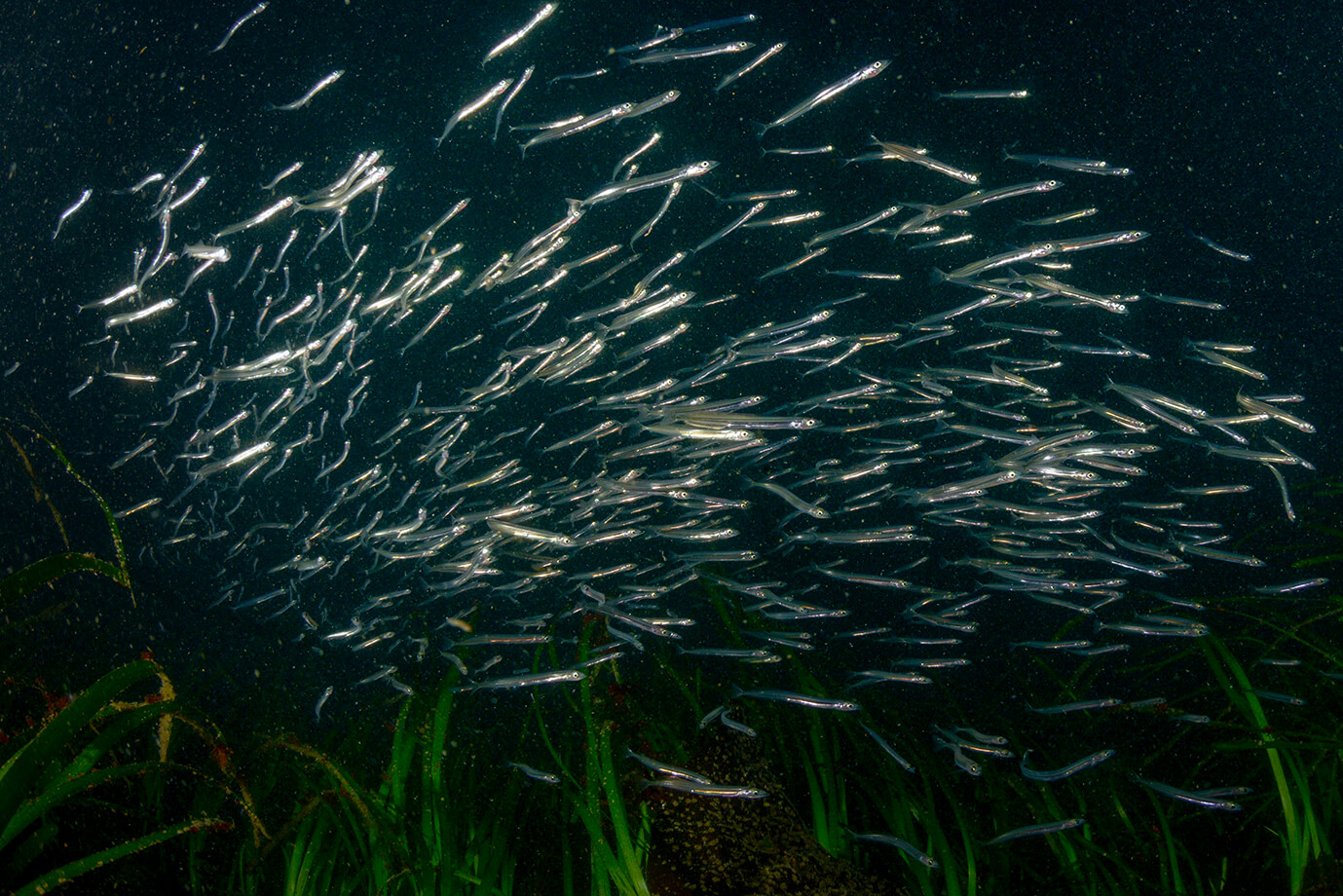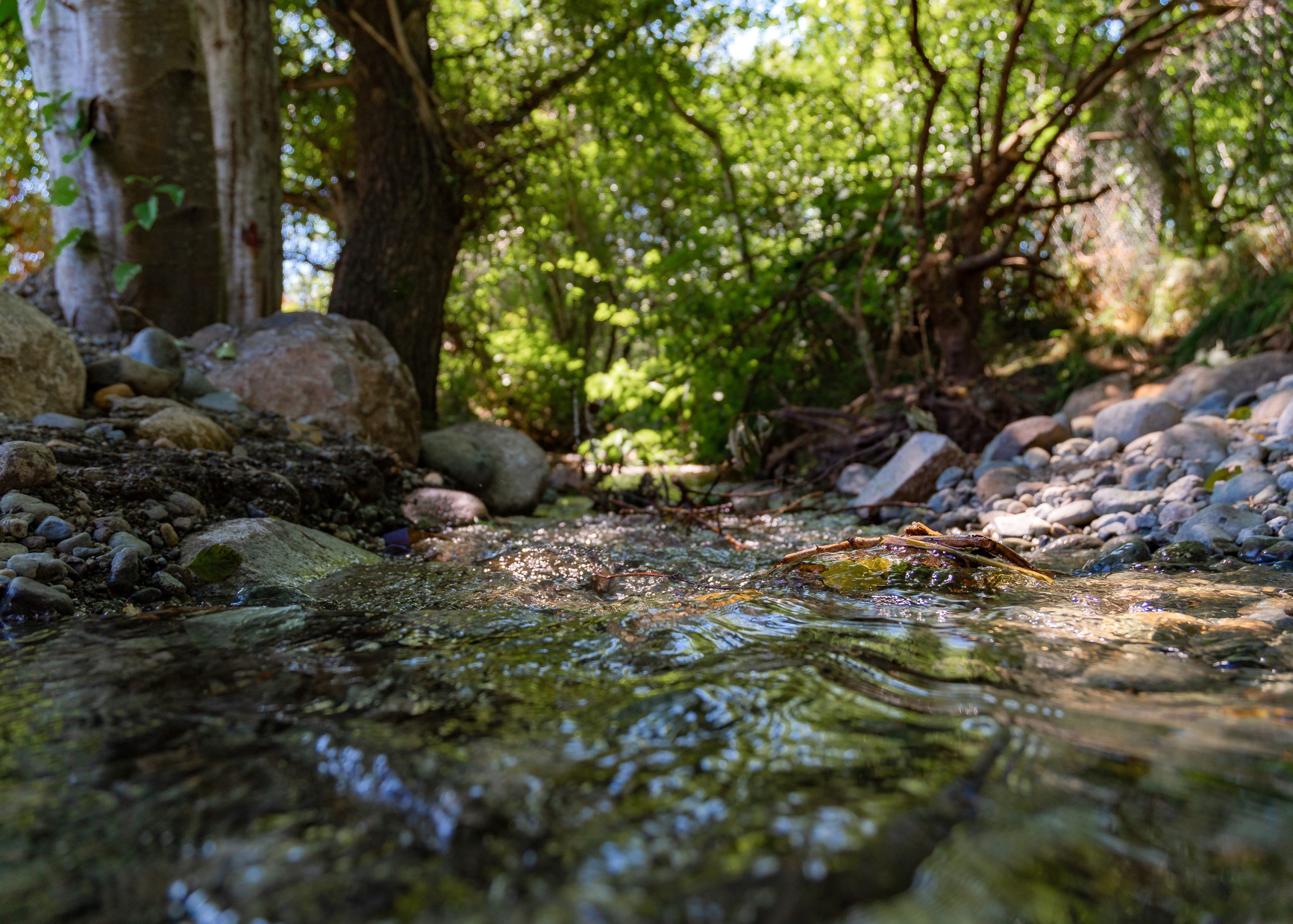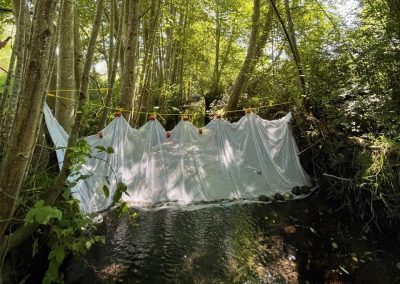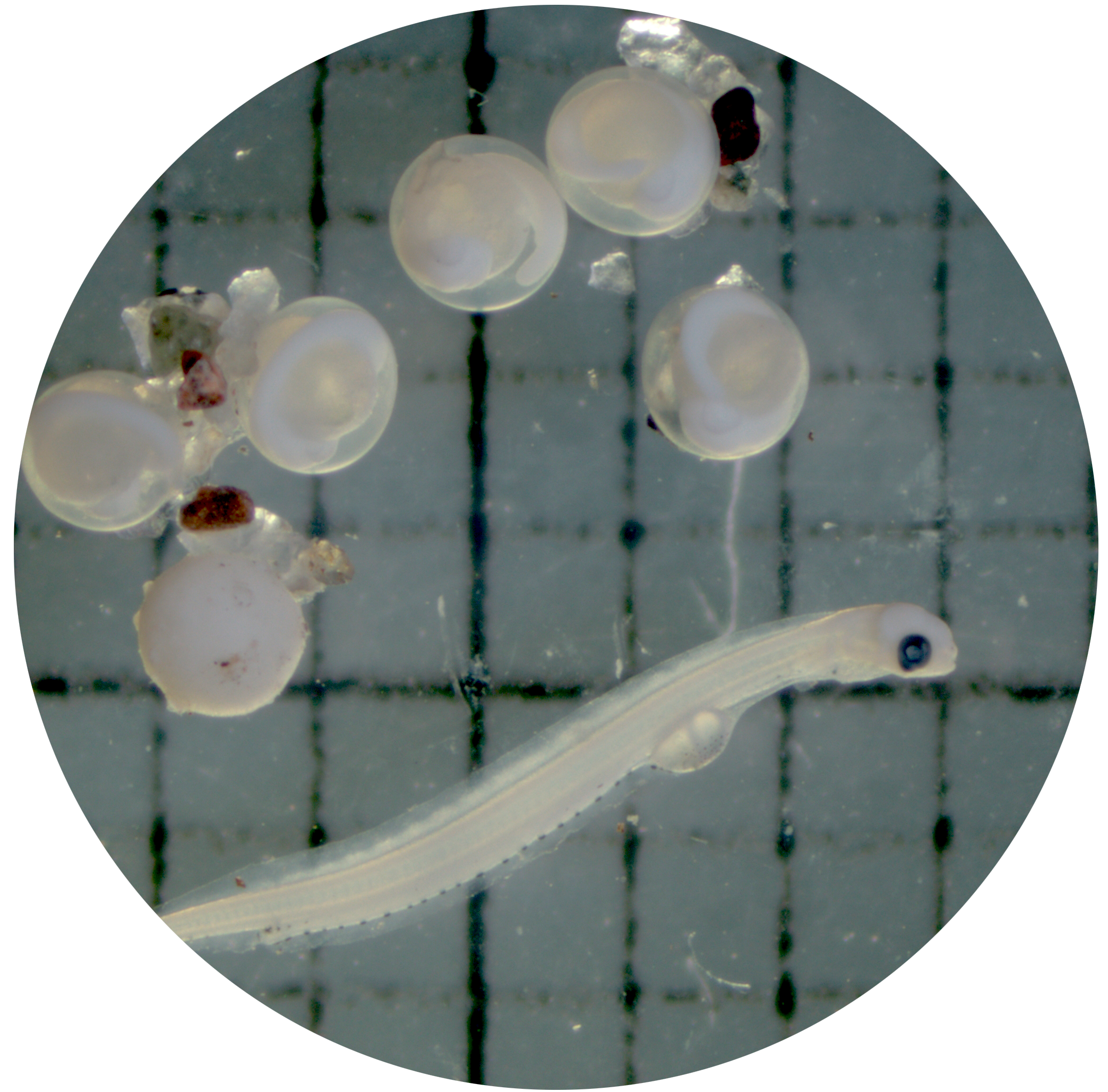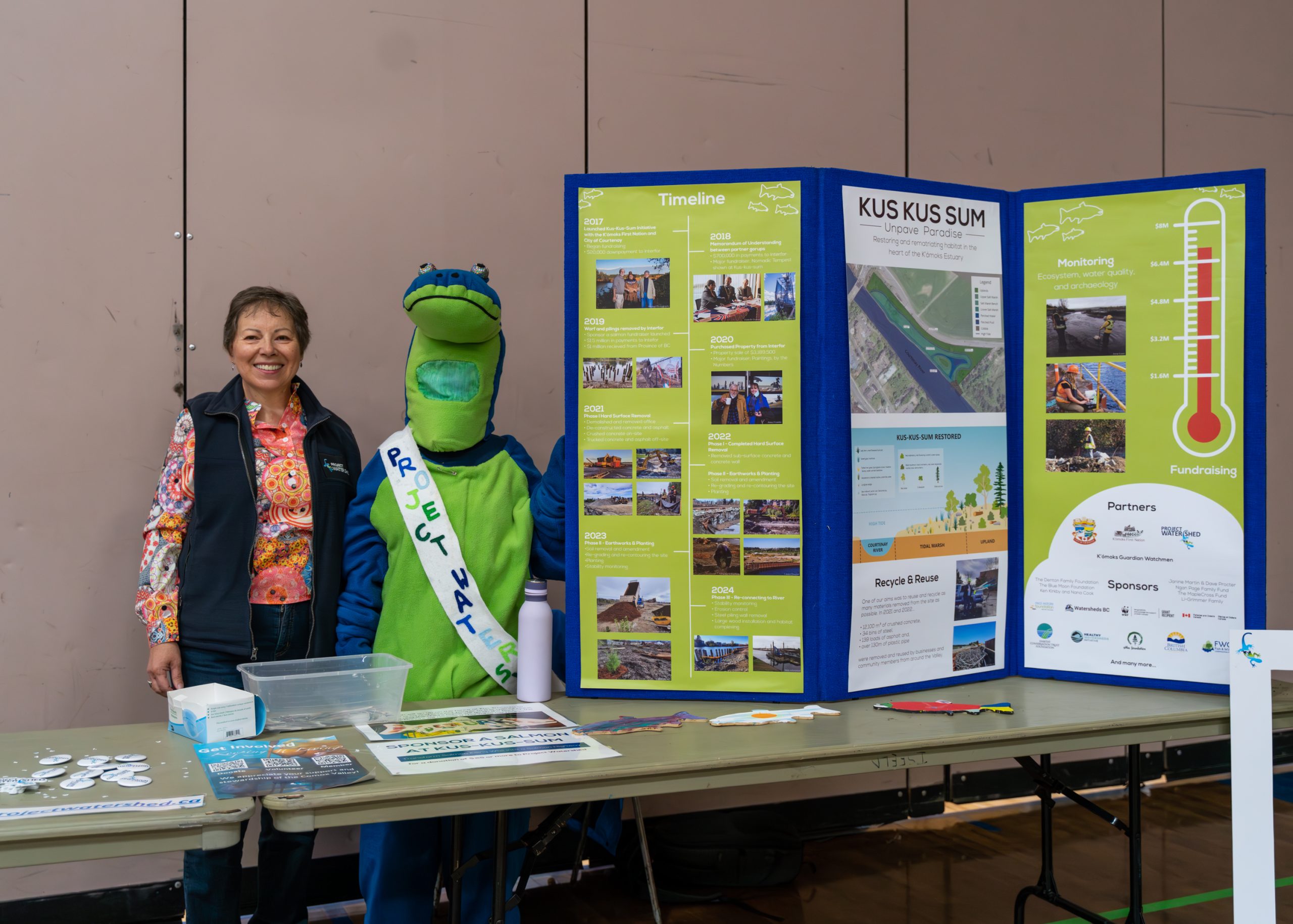Project Watershed’s 2023 Annual General Report
Photo Gallery
Words from our Executive Director, Caitlin Pierzchalski
A very big thank you to all our members, board, staff, and community supporters for making 2022-2023 such an incredible and successful year! It’s only with the contributions of time, funding, and support from each and every one of you that we are able to restore and conserve the Comox Valley’s watersheds and sensitive habitats. This year, we continued our restoration of Kus-kus-sum, made new and exciting partnerships, and furthered our work in freshwater and marine restoration, forage fish research, and education and outreach. We are grateful to be taking on new projects in the coming year and it’s all thanks to our growing community that supports us in working towards a healthy and abundant Comox Valley! Thank you!
Human Resources
As Project Watershed enters our 30th year our team continues to grow and change. At the end of June of 2022, we added a Communications Specialist, Laura Stewart, to our roster and are thrilled to have her onboard. Under the direction of Caila Holbrook, Manager of Outreach and Education, and in collaboration with the rest of the team, she has been creating visual appeal and social media attention for our work. If you have come across a recent newsletter, poster, Facebook, Instagram or LinkedIn post you have seen her handiwork.
Sadly, in December of 2022 we said goodbye to long-term staff member Jennifer Sutherst who moved into a new position with Fisheries and Oceans Canada. Our team has needed to shuffle work around and hire a new staff member, Stefanie Lane, to fill the gap that Jennifer left. Stefanie Lane has been our Restoration and Research Lead since January and quickly became integrated into our team and an asset to our work.
All other staff have remained with Project Watershed, and this includes Caitlin Pierzchalski, Executive Director; Caila Holbrook, Manager of Outreach and Education; Virginia East, Citizen Science & Stewardship Coordinator, Jay Baker-French, Restoration Specialist and Terria Hanuse, Financial Specialist. For more information about our staff please visit the Staff Directory.
We are once again hiring summer students to do technical restoration and research work as this has worked well over the past several summers. In fact, Jeremiah Bain, a former summer student hire, is now doing contract work for us as needed. We aim to have two summer technicians in place by the beginning of July.
Our board from 2021/2022 continued into 2022/2023 with Kathy Haigh as Chair, Patricia Sloan as Vice Chair, Alisha Drinkwater as Co-Vice Chair; Brian Storey as Treasurer; Dan Bowen as Technical Director; Don Castleden as Estuary Working Group Chair; and Bill Heath as Mapping and Kelp Director. For more information about our board please visit the Board Directory.
Volunteer support, one of the most important aspects of Project Watershed, was high again over the 2022/2023 period with around 130 volunteers giving over 1700 hours of their time to support our projects, events and other initiatives. This year, to thank, recognize and encourage volunteering, we are giving gift cards to all volunteers who give 30 hours or more of their time. As always, Project Watershed is grateful for all volunteer support and looks forward to working with our community during the 2023-2024 period.
Restoration Projects
In December of 2022, we got a first look at how a restored Kus-kus-sum will operate during storms and king tides this winter. It was exciting to see the high tides move over the steel wall and inundate the site.
While significant progress has been made at the Kus-kus-sum site, there is still a considerable amount of work left to be done. In 2022, approximately one-third of the area was recontoured and planted. Despite lots of standing water on the site following winter storms and king tides, we were so excited to see lush greenery coming back! Volunteers and staff alike are thrilled to see last year’s plantings growing vigorously – we had an estimated 80% survival of all plants planted. Project Watershed aims to complete the recontouring and replanting of the remaining portion of the site during the upcoming summer and fall seasons, assuming sufficient funding is available. The main tasks to be undertaken on-site this year include recontouring and regrading the land, creating habitat complexes, and planting native species.
The recontouring process involves the use of excavators and large trucks, which will be mobilized to the site. The excavators will reshape the land to specific elevations that are optimal for establishing native plants and plant communities. Excess soil will be removed from the site and transported to a designated location. Project Watershed carried out soil testing last year, and since March we have had to significantly increase testing to meet new soils regulations and gain a comprehensive understanding of the soil composition, precisely delineate the site, and determine the most suitable locations for the displaced soil. Once an area has been excavated to the desired elevation large wood pieces salvaged from the site will be added to provide habitat variation, and finally plants will be added to allow them time to grow before we remove the steel wall in the winter of 2024-2025.
The selection of native species to be installed includes a variety of upland riparian trees, shrubs, as well as tidal marsh plants such as sedges, rushes, and grasses, similar to the species planted in fall of 2022. Last year, approximately 5,000 plants were successfully planted across these different habitat types. This fall, an additional 15,000 plants are planned for the remainder the site and a significant number of volunteers will be sought to assist with this endeavor.
Funding for the restoration of Kus-kus-sum is currently coming from a variety of contributors including:
-
-
- British Columbia Salmon Restoration and Innovation Fund
- the Healthy Watersheds Initiative
- the Fish and Wildlife Compensation Program
- the World Wildlife Fund
- the Habitat Conservation Trust Fund
- the Pacific Salmon Foundation
- Aboriginal Fund for Species at Risk
- Indigenous Watersheds Initiative
- and the general public
-
Project Watershed thanks everyone involved in the fundraising process, the most current list of donors is available at Friends of Kus-kus-sum.
Kus-kus-sum Page
Friends of Kus-kus-sum
Donate
Sponsor a Business Salmon
Latest Kus-kus-sum News
Kus-kus-sum: End of Season Wrap-up
Now that we have put the Kus-kus-sum site to bed for the winter, we wanted to give you all a little update on how things progressed this season – lots happened!
Fall Planting at Kus-kus-sum
We are looking for volunteers to assist us with planting native trees, shrubs, and marsh plants at Kus-kus-sum this fall!
Fall Work at Kus-kus-sum
We are looking for volunteers to assist us with weeding out invasive plants to make room for the native plants arriving later this fall!
Fall Action at Kus-kus-sum
You may have noticed that excavators were back at work on the Kus-kus sum site, continuing to transform the former sawmill site into a healthy estuarine ecosystem.
Ken Kirkby Legacy Challenge
In 2018, Ken Kirby became involved with Project Watershed and the Kus-kus-sum Project and contributed right up to his death on June 20, 2023. While donating 50 of his most prized paintings prior to his passing, Ken expressed his deep appreciation for our partnerships...
Project Watershed continues to work at saltmarsh, eelgrass and kelp restroation as well as green shores projects as components of our Coastal Restoration Plan. In collaboration with Pacific Salmon Foundation, the BC Stewardship Centre and the CVRD, we have undertaken a feasibility and scoping study for the CVRD-owned Rotary Viewing Stand Park on Comox Rd. The aim of the work was to highlight opportunities and costs for applying a green shores restoration perspective to that park. Work is currently in the planning stages and restoration works will likely be taking place in 2023/2024.
During the spring of 2022, Project Watershed planted 1,100 m2 of eelgrass between a subtidal site at Miracle Beach with a team of divers, and an intertidal site at the Trent River estuary with volunteer planters.
In June of 2023, Project Watershed will be working to restore eelgrass beds around the Oyster River Estuary. Divers will bring in locally-harvested donor eelgrass plants, and volunteers will tie the plants onto metal washers to prepare for transplanting.
We are also partnering with the Kelp Rescue Initiative from Bamfield on the west coast of Vancouver Island to pursue new approaches to kelp restoration.
Coastal Restoration Page
Coastal Restoration Plan
Donate
Latest Coastal Restoration News
Eelgrass Update
In the fall our restoration team surveyed the three eelgrass beds which were planted with the help of our volunteers back in June. The beds are looking healthy!
Greenshores at Dyke Road Park – Reimagining a Park
On September 20 and 21, over 20 people were on site to help with planting at the Comox Valley Regional District’s (CVRD) Dyke Road Park redevelopment project.
Gartley Beach Green Shores for Homes Project
Project Watershed is teaming up with the CVRD and the Stewardship Centre for BC to do some shoreline restoration at Gartley Beach in Royston.
Glen Urquhart
During the summer of 2022, we implemented three fish habitat riffles along a stretch of the creek that is used for spawning and rearing by Coho salmon and cutthroat trout, and Chum spawners. These structures have been designed to enhance the rearing habitat for young salmon by deepening pools upstream, creating sheltered areas along the banks, and increasing the abundance of invertebrates through addition of cobbles and gravel and improved water aeration. With the arrival of rainfall, we hope that these riffles will also serve as potential spawning grounds for Chum and Coho salmon. Additionally, we focused on removing blackberry bushes from the riparian plantings that were established the previous year. Furthermore, prepared the opposite bank of the stream section for planting later in the fall.
At present, our ongoing efforts involve extensive planting of native riparian species, installing live-staked willows, and setting up deer protection fencing. We are also thrilled to collaborate with Lentelus Farms and the North Island College farming education program for a significant hedgerow planting. Hedgerows offer numerous ecological benefits in agricultural landscapes, including providing habitats for pollinators, creating corridors for small and medium-sized wildlife and amphibians, and serving as feeding and nesting areas for birds. Moreover, they add aesthetic appeal and can yield edible or otherwise useful plant products. Join us in fostering a partnership with Lentelus Farms and contribute to this endeavor!
Looking ahead, our focus will be on initiating a pilot project for Garry Oak meadow restoration on the Comox Bay Farm property. We will be experimenting with various site preparation techniques to determine the most effective way to transform an old-field site, currently dominated by domesticated pasture grasses, into a thriving meadow that supports the growth of Garry Oaks and other native species like Camas lilies. This area will serve as a nursery to propagate local populations of these vital plants, with the aim of expanding their range in the coming years.
Mallard Creek
In 2022 we continued with our restoration plan and completed 50 additional meters of channel clearing to remove the floating mat of invasive reed canary grass and live-staked the banks with willow and red osier dogwood. We also planted several dozen native riparian species to help diversify the stream habitat corridor. We installed deer fencing in 2022 after observing browse damage on some of our previous plantings. The 2022 willow stakes have begun their growth and are looking good. Previous years’ willows are tall and lush, and the channel remains open in most areas where we have worked. Some hand maintenance of regenerating reed canarygrass will be required this season and in the coming years. We have applied for a small grant to do more restoration work this season – confirmation will be in July. If we are successful, we will do maintenance work on our previous work areas and undertake a channel clearing on another ~20 m of the stream to connect our 2018-2019 work to the 2020-2022 work areas. Then in the fall, we will plant some upland riparian species to increase the diversity of the riparian corridor.
Latest Creek Restoration News
Mallard Creek Restoration Update for 2024
Restoration work in Mallard Creek will continue this year, including invasive removal, restoring connectivity, and trial planting of a new riparian species. Volunteer events starting in September 2024.
Glen Urquhart Update – Spring 2024
Latest news from Glen Urquhart restoration progress for spring 2024.
Glen Urquhart Enhancement Successes and Challenges 2023/2024
It has been a productive year at Glen Urquhart. There is lots more to do but we are already seeing the fruits of our labour.
Forage fish are small schooling fish that play a critical role in the marine ecosystem. Forage fish are food sources for salmon, marine birds, and larger marine mammals. Project Watershed has continued forage fish research, focused on identifying Pacific sand lance and surf smelt spawning habitat. These two fish are called intertidal or beach spawning forage fish, as they use fine sand and gravel beaches for spawning. Our team includes Georgie Harrison of North Island University, the K’òmoks First Nation (KFN) Guardians, and a wide variety of citizen science volunteers who are actively involved with the boots on the ground research throught out the summer and winter months.
In 2022 year, Project Watershed played a significant role in the leadership of the BC Forage Fish Monitoring Network (BCFFMN). Currently Caitlin Pierzchalski and Ian Bruce are playing the roles of co-chairs and Virginia is the admin coordinator or secretary. This network brings together forage fish stewardship groups from all around the Salish Sea such as groups on the west coast, Victoria area, Tseil-Waututh Nation in Burrard Inlet and Indian Arm, the Sunshine Coast, along the east coast of Vancouver Island. The BCFFMN also collaborated on a panel discussion monderated by Jacklyn Barrs at the 2022 Virtual Salish Sea Ecosystem Conference.
The 2021-2022 period was the last year of our BC Salmon Restoration and Innovation Fund grant, however, Project Watershed chose to continue this project due to the fact that forage fish are keystone species to the marine food web. We are actively seeking funding sources to continue this work both locally and expanding into unsurveyed areas. There were nearly 50 individual sampling events between November and January of 2022/2023. This season marked the 4th season of winter forage fish sampling.
2022 Highlights include:
-
-
- Mid-November – Mansons Landing, Cortes Island finding over 1000 eggs during a sampling event
- More eggs were found in December at blitz locations like Shark Spit and Smelt Bay, on Cortes Island.
- Eggs were found in Comox Valley at Air Force Beach and Goose Spit. This triggered our blitz season which started in the snow.
- We found eggs at Kye Bay on Dec 7 – this date has produced eggs for the last three years.
- Eggs were found on Hornby Island at Shingle Spit and Phipps Point. We also visited other areas of Hornby Island and sampled two new beaches.
- We sampled Ken Forde Beach/Boat Ramp, Williams Beach, and Saratoga Beach. Some of these sites have never been sampled before and others were last sampled in 2019.
-
Students and staff from North Island College in both the Comox Valley and Campbell River have been involved in this project. Students have participated in field work as part of a second year ecology course and have learned to identify the eggs under a microscope. Many of these students continue to support the project into the summer months. A special thank you to Garnet Martens and Georgie Harrison of North Island College for their significant contributions and in-kind leadership to this project in 2022. Other partners include the Greenways Land Trust, the Discovery Passage Aquarium, the Friends of Cortes Island (FOCI), Conservancy Hornby Island (CHI), and Quadra Island (Team Quadra).
Project Watershed would like to thank all our financial contributors, without them we would not have been able to establish a robust forage fish program within the northern Salish Sea between 2019 to 2022. This includes the British Columbia Salmon Restoration and Innovation Fund, the Comox Valley Regional District and the Pacific Salmon Foundation.
Donate
Latest Forage Fish News
Gwen Janz
Meet our new Forage Fish Lead Biologist!
Kate McKeown
Meet our new Forage Fish Technician!
Fall and Winter Forage Fish Sampling
We’re gearing up for the fall/winter season of forage fish sampling!
A New Day for Forage Fish
Project Watershed and the Coastal Forage Fish Network (CFFN) are celebrating Surf Smet Day on October 25th! This adds another day on which to celebrate and raise awareness about beach spawning forage fish as Pacific sand lance are celebrated on a day in December.
Forage Fish Survey Techniques Workshop
The Coastal Forage Fish Network (CFFN) is hosting two one-day workshops to introduce development considerations and methods to survey for beach spawning forage fish for projects that may impact beach spawning forage fish.
Education Initiatives
Project Watershed’s Students Keeping It Living Education Program sparked an unprecedented amount of interest this year. Early in 2023, Project Watershed collaborated with Serina Allison, Lead Teacher in Environmental Sustainability & Numeracy at School District 71, to create a brochure that detailed the program. Mrs. Allison sent this out to all teachers in the district and over 50 teachers responded with interested in the program. With the resources available, Project Watershed provided the program to 30 classes or about 600 students this spring! Classes that were not able to participate were wait-listed for when more resources become available.
Our program consists of an in-class presentation, a field trip and a follow up art/literature project. This spring our field trips included Courtenay Airpark, Glen Urquhart Creek, Goose Spit, and Kus-kus-sum. We worked with elementary school students from Airport School, Arden School, Queneesh School and the North Island Distance Education School. In addition, a ninth grade Marine Biology class from Highland Secondary participated in an adapted forage fish survey, four ninth grade science classes from Lake Trail in education and stewardship at Kus-kus-sum and four sixth grade classes in education and stewardship at the Airpark.
As part of this program’s art/literature component, the elementary classes choose whether to paint a wooden salmon or create an estuary knowledge collage. This spring 115 salmon were painted, and five collages were created. All the salmon that were painted are available to sponsor for $25 or more. Once sponsored they will go up on the Kus-kus-sum fence. We will be putting the salmon that have been sponsored over the 2022/2023 period up on the fence that lines the Kus-kus-sum site along Comox Road this summer. There should be enough to fill the entire fence! To sponsor a salmon, visit our Donate page.
Resources K - 12
Community Events and Outreach
Thanks to our volunteers, staff and broader community all the events we held or attended over the 2022/2023 period were fun and successful. Starting in August of 2022 Project Watershed began hosting Volunteer Symposiums where volunteers learn more about our organization and volunteer opportunities firsthand. Since August we have held four of these symposiums for between 15 and 30 people. As attendees reported that the sessions were very helpful in becoming more familiar with Project Watershed and more knowledgeable about what our volunteer opportunities entail, we plan to continue holding them every six months to orient new volunteers and touch base with continuing volunteers.
On the fundraising side of things, we held our annual Keeping It Living Dinner on September 17th, 2022, which raised $8,000 and was once again a sold-out event. Later in the fall of 2022, we held a raffle for sculptures and experiences that were donated to us by people and businesses in our community. The raffle raised over $5,800. In November, we ran a Giving Tuesday promotion which raised over $18,500. We were also involved in Fiesta, participated in the Tin Town Christmas Studio Tour and ran our annual Estuary Carol Walk.
On January 28th, 2023, we launched our 30th year with a celebration to appreciate our volunteers, members and donors at the Old House Hotel and Spa. We followed this up with another 30th year event on May 27th that looked at the history, present and future of the organization.
Earth Week 2023 was a busy one as we held planting events, a shoreline cleanup from Little River Ferry to Royston, had information booths at various locations and held a 50/50 raffle which raised approximately $3,100.
Project Watershed is grateful for the support of our community wheter it be attending our events, volunteering with us, or supporting our activities financially. We are also very proud of all the things we were able to accomplish this year with all that support.
Calendar
Latest Community Outreach News
Volunteer Symposium 2025
On February 22nd, we will be appreciating all those who volunteered with us in 2024 and orienting anyone who wants to volunteer in 2025 at our Symposium event at 2 pm. We encourage all current and prospective volunteers to attend!
Streamkeepers Course October 4 – 6, 2024
Project Watershed is hosting a Streamkeepers training course this October for $150.
Forage Fish Symposium
The forage fish team has been busy planning the Coastal Forage Fish Network Symposium. Hosted on Zoom, this event brings together researchers, experts and community citizen science volunteers to share research highlights from across Vancouver Island and beyond.
Volunteer Orientation April 2024
Come out and learn more about volunteering for Project Watershed on April 4th, 2024. This session will help prepare you for upcoming volunteer opportunities.
Forage Fish Lecture in Tofino
Project Watershed’s Forage Fish team is coming to Tofino to share our research. Join us for a lecture on the importance of forage fish, their biology, ecology, and our west coast project plans to map this ecologically important habitat.

